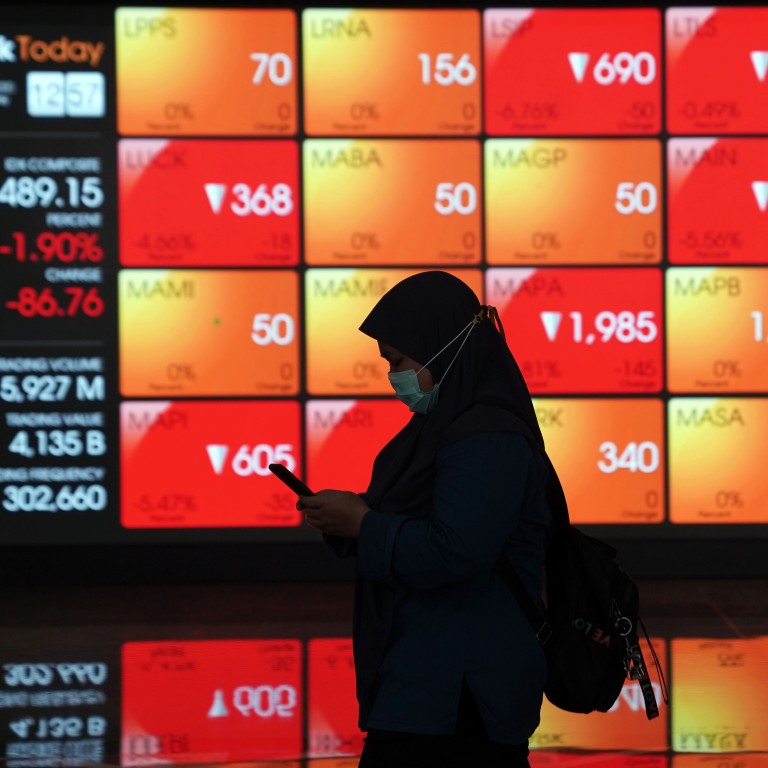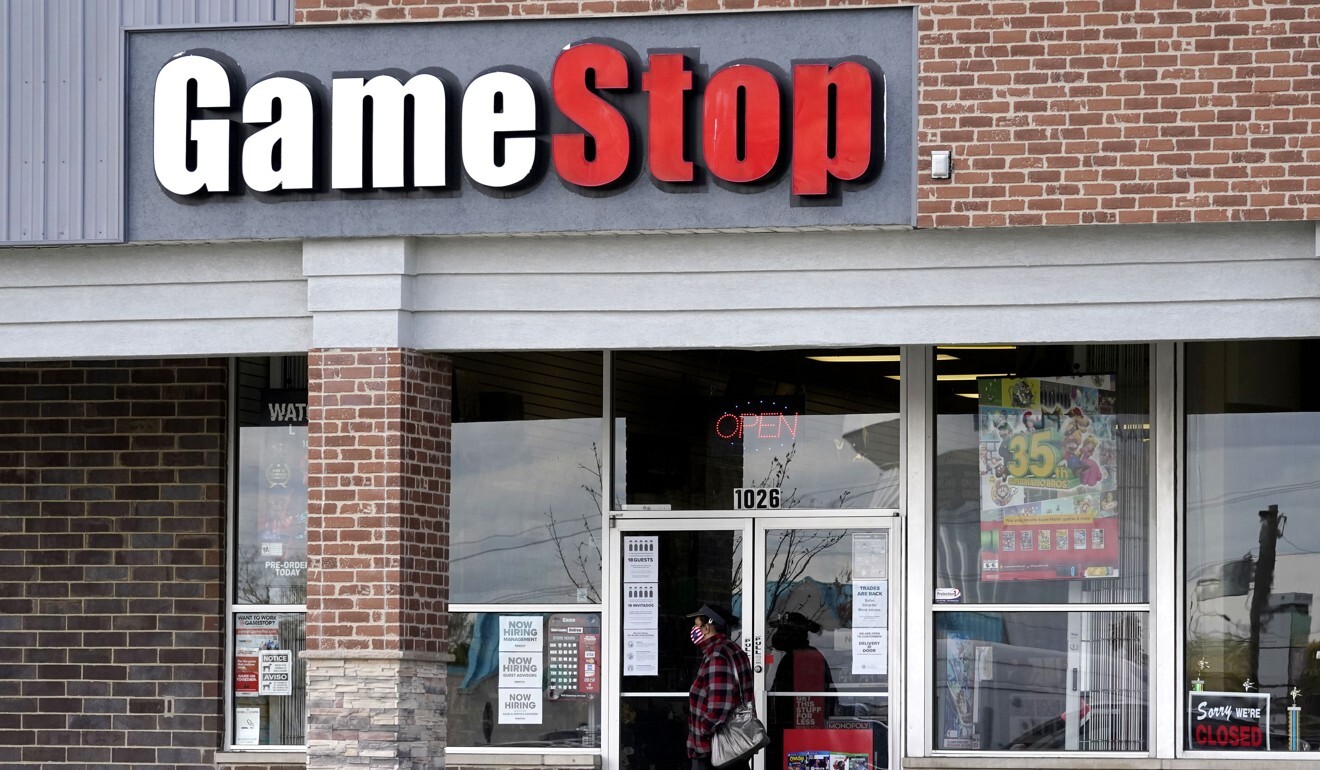
Why Indonesians are turning to Jokowi’s son and other influencers for stock market insight
- Never mind news sites, retail investors in Southeast Asia’s second-largest economy are increasingly getting guidance on shares from social media
- Followers of influencers such as Kaesang Pangarep, the president’s youngest son, have sent local stocks soaring – though not yet to the extent of GameStop in the US
“To me, social media is very important, because some investors share tips on which stocks are currently [on the rise]; if I have the money I will heed their advice and buy them,” said Rifky, a 22-year-old university student who lives in Yogyakarta.
“Lately I’m more into learning about stocks from Kaesang. I learned from his tweets about some unfamiliar stocks, so I’m seeking information from him, though I haven’t bought any stocks that he has tweeted so far.”
WhatsApp-obsessed Indonesia and India struggle to forsake app amid privacy policy confusion
Rifky is one of the many tech-savvy Indonesian millennials trying their hand at trading stocks, bolstered by the proliferation of advice from social media influencers – and prime investment opportunities from the pandemic-related downturn in Southeast Asia’s largest economy.
The trend of social-media-driven stock trading sprang up last year in Indonesia, where more than half of the country’s population of 270 million are unbanked or underbanked. As of January 17, there were over 4 million retail investors carrying out 619,000 transactions daily, an increase of more than 50 per cent from 2019, according to the Indonesia Stock Exchange (IDX).

Newbie investors such as Rifky typically open their first broker accounts using the stockbroking mobile apps provided by their banks’ securities unit. They tend to play it safe and shy away from more complicated financial products.
Rifky said she bought her first stock for 100,000 rupiah (US$7) in 2018, when she opened a trading account with the help of a student community interested in stocks. She ignored it until September last year, when she received an email informing her of the 32,000 rupiah return (US$2.27) on her investment. She then decided to delve deeper into the market, and now has six individual stocks in her portfolio.
“These new retail investors are more financially literate and comfortable using existing technologies, which is a big factor,” Laksono Widodo, director of trading and membership at IDX, told This Week in Asia.
“Today’s online trading applications are more user-friendly compared with five years ago. Mobile data packages are also more affordable and readily available in big cities in Indonesia, so anyone with a smartphone can check their trading positions easily.”
How a US woman’s ‘elevated lifestyle’ tweet showed what Bali really thinks of privileged Western tourists
This also means that when social media influencers dispense stock-market tips, their followers can act quickly. On January 15, when Widodo’s son Kaesang tweeted to his 2.1 million followers about Bank Pembangunan Daerah Jawa Timur, the lender’s shares shot up as much as 15 per cent to all-time high, according to a Bloomberg report.
Kaesang, 26, was known as an entrepreneur selling banana fritters, shirts, and bottled coffee before he turned to stock investments. He has said that his tweets are “only a reference, not an order to sell or buy”, though his advice has also sparked rallies in the likes of Aneka Tambang. On January 7, the state-owned mining company saw its shares soar more than 17 per cent and hit their highest daily trading volume on the Indonesian bourse after Kaesang tweeted about them.
Rafiqatul Husna, a 22-year-old accounting student in Bali, said she learned about the stock market from school, though “about 60 per cent of my knowledge is from social media”. She bought her first stocks in June last year after seeing that “many blue chip companies’ shares were becoming cheap due to the pandemic”.

03:17
Indonesia’s coronavirus cases surpass 1 million as country continues mass Covid-19 vaccinations
In pursuit of returns – or cuan, as Indonesian retail investors say – Rafiqatul follows a stock-focused account on Instagram called @ngertisaham, which translates to “understanding stocks”.
“They like to share information about stocks that I think fit for beginner investors like me,” she said. “They also often go ‘live’ on Instagram with successful investors, normally in the evening for an hour, and I will tune in to watch those.”
Every month, Rafiqatul sets aside at least 200,000 rupiah to invest from the income she gets from selling hijabs and other Muslim attire online. Her portfolio now contains six individual stocks, which she doesn’t plan to sell in the near future.
“I bought my first lot of stocks at 12,700 rupiah, but now it’s up around 700 per cent, so I’m still holding it because I’m considering this a long-term investment,” she said.
Indonesian regulators for the most part welcome the involvement of influencers to boost the public’s stock-market literacy, but warn new retail investors not to follow their advice blindly.
‘Little Suharto’? Indonesian leader Widodo’s places Twitter personalities, allies in key posts, sparking backlash
“We are seeing social media influencers bring more positive impacts than negative because they are educating the youth about the stock market. I think around 80 per cent of Instagram influencers have good intentions, but we might need to warn the other 20 per cent,” Laksono of IDX said.
The regulators held around 7,000 programmes last year to teach the public about investing, but influencers have accelerated the progress, he said.
Though Laksono said social-media-driven retail investors had not yet upended the Indonesian stock market, as they did in the US this week, some newbie investors had been duped into buying underperforming stocks. He added that insider trading was also one of the regulator’s biggest worries, as companies might take advantage of an influencer’s social clout to bolster the prices of particular shares.
“Please know what you buy,” Laksono said. “You can listen to what other people say, it’s OK to listen to these influencers, but as investors you must do your due diligence.”

